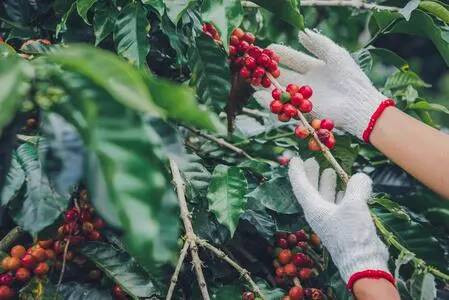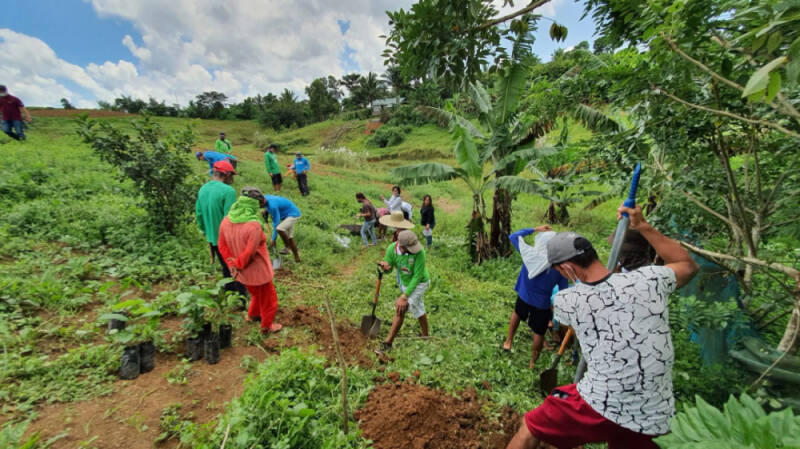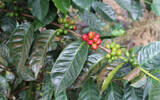ACDI/VOCA and WCR cooperate to fund a project to legally introduce Arabica varieties to the Philippines for the first time.
Recently, the United States Department of Agriculture (USDA) funded the conclusion of the five-year Philippine Coffee Progress and Agricultural Enterprise (PhilCAFE) project funded by the International Bureau of Agricultural Cooperative Development (ACDI/VOCA) and the World Coffee Research (WCE). The project is focused on improving production and quality, empowering farmers and supporting the skills development of national researchers and producers, paving the way for innovation in the Philippine coffee industry.

The project was launched in 2019 to support more than 13000 coffee farmers across the Philippines. Several field trials, training, learning and research were also held. Kraig Kraft, director of WCR Asia and Africa, said the project was successful, legally introducing new Arabica varieties to the Philippines for the first time, and supporting research on coffee-related projects, improving the quality of Philippine nurseries.
WCR participated in the installation of 18 farm technology trials (OFTT) and two coffee variety test shops, both of which continued to manage data collection and analysis in cooperation with government agencies, cooperatives and farmers. The coffee variety test shop focuses on introducing and evaluating many high-performance varieties developed outside the Philippines, providing Philippine coffee growers and industries with opportunities to acquire new, high-yield, climate-tolerant, pest-resistant and disease-resistant varieties. Researchers from the Department of Agriculture in the 11th District of the Philippines said that the decline in coffee production in the Philippines has a lot to do with climate change, so the Philippine coffee industry needs this kind of project very much. If it can adapt to the new varieties, it can maintain production and provide income for farmers.

According to Philippine customs regulations, guns and coffee varieties are contraband. The establishment of coffee variety test sites in Luzon and Mindanao is the first time that coffee varieties have been legally introduced into the Philippines. These varieties come from other coffee producing countries and are being tested under climatic conditions in the Philippine growing areas to determine their potential vitality yield and quality.
Many smaller Arabica coffee-producing countries face the same challenges as the Philippines. There are no local breeding programs, no new varieties that can meet the needs of the market, and no varieties that can meet the needs of climate change. And the project can help these countries, while helping the capabilities of local researchers. The project aims to create sustainable coffee development in the Philippines through cooperatives, producer organizations and government agencies, and there will be more varieties of coffee from the Philippines on the market in the future.
Important Notice :
前街咖啡 FrontStreet Coffee has moved to new addredd:
FrontStreet Coffee Address: 315,Donghua East Road,GuangZhou
Tel:020 38364473
- Prev

Rare Coffee varieties: Xi Zao, Eugene Niodes, Wush Wush, Laurina
Coffee can be divided into three categories: Arabica (Arabica), Robusta (Robusta) and Liberia (Liberica). At present, Arabica and Robusta are the most common coffee trees for commercial cultivation. With the development of coffee industry, coffee varieties are constantly moving.
- Next

Where is the electric bean grinder better than the manual bean grinder? What should you pay attention to when grinding individual coffee beans?
In order to pursue long-term cooking stability, most friends will spend a lot of money to buy electric bean grinder (electric mill for short), the main reason is that they do not want to be bothered by too much fine powder in the hand bean mill! Secondly, the reason for buying electric mill is not only to ensure the stability of grinding quality, but also to make it easier.
Related
- What grade does Jamaica Blue Mountain No. 1 coffee belong to and how to drink it better? What is the highest grade of Blue Mountain coffee for coffee aristocrats?
- What are the flavor characteristics of the world-famous coffee Blue Mountain No. 1 Golden Mantelin? What are the characteristics of deep-roasted bitter coffee?
- Can I make coffee a second time in an Italian hand-brewed mocha pot? Why can't coffee be brewed several times like tea leaves?
- Hand-brewed coffee flows with a knife and a tornado. How to brew it? What is the proportion of grinding water and water temperature divided into?
- What is the difference between Indonesian Sumatra Mantinin coffee and gold Mantinin? How to distinguish between real and fake golden Mantelin coffee?
- What does bypass mean in coffee? Why can hand-brewed coffee and water make it better?
- Unexpected! Ruixing Telunsu lattes use a smoothie machine to foam milk?!
- % Arabia's first store in Henan opens into the village?! Netizen: Thought it was P's
- Does an authentic standard mocha coffee recipe use chocolate sauce or powder? Mocha Latte/Dirty Coffee/Salty Mocha Coffee Recipe Share!
- What is the difference between Vietnam egg coffee and Norway egg coffee? Hand-brewed single product coffee filter paper filter cloth filter flat solution!

